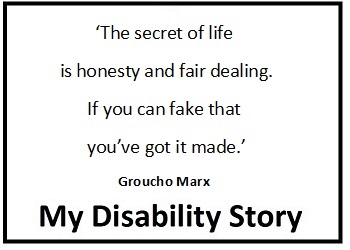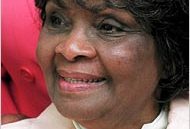Thrivent Ethisphere Institute ethics award best money can buy?, One of The World’s Most Ethical Companies?, Former Ethisphere advisory panel member: take award “with a grain of salt.”
From Thrivent:
“Thrivent, a not-for-profit membership organization that helps Christians be wise with money and live generously, announced today it has been recognized by the Ethisphere Institute, a global leader in defining and advancing the standards of ethical business practices, as one of the 2018 World’s Most Ethical Companies.”
“For the last seven years, Thrivent has been honored to be named a World’s Most Ethical Company,” said Brad Hewitt, CEO of Thrivent. “As we serve our members and carry out what it means to be an ethical company through our actions and business practices, we are pleased to be recognized as leaders in setting a standard that we hope will continue to develop within the business community.”
From a Thrivent in house attorney email November 27, 2018.
“Thrivent is proud of its trusted reputation and will take necessary steps to protect itself from your misrepresentations and false accusations. For the past 7 years the Ethisphere Institute has recognized Thrivent as one of the top 100 most ethical organizations in the world.”
From Slate March 19, 2010.
“Sometime in the next week or so, something called the Ethisphere Institute is scheduled to announce this year’s list of the “World’s Most Ethical Companies.” If past years are any indication, the winners will have their press releases ready to go, and news outlets across the country will eat it up. There’s just one hitch: These ethics awards—let’s call them the Ethies—may have ethics issues of their own.
The Ethisphere Insitute, which describes itself as “a leading international think-tank dedicated to the creation, advancement and sharing of best practices in business ethics, corporate social responsibility, anti-corruption and sustainability,” is actually a for-profit company. The institute also lends itself credibility with an “advisory panel” of ethicists, yet several former members say they’ve had little if anything to do with it. Finally, the institute and an affiliated company sell services to and collect fees from some of the same companies Ethisphere extols.”
“The scoring is based mostly on information provided by the companies themselves, and Ethisphere says its questionnaire should take 30 to 40 minutes to complete. Ethisphere then asks companies for documentation to support survey answers and reviews other sources, such as news articles, court records, and Consumer Reports. Ethisphere says it reviewed more than 10,000 corporations for last year’s list.
Brigham acknowledges that the system is imperfect. “Could they be lying to us?” he says. “Sure, they could. … Over time, we’re going to have to figure out how to verify that. And no one is going to pay us to verify it, and if we try to charge them to verify it, we’re going to have reporters like you make it sound like we’re getting paid off.”
Ethisphere says its methodology was developed with the help of a panel of independent experts. But as I dialed up half a dozen of the 20 committee members, I found only one (George Ash) who said he actually contributed to shaping the methodology. Others said they made a suggestion that wasn’t heeded (Thomas Donaldson), or didn’t seriously analyze the methodology (Patrick Barwise, John Dienhart, Chris MacDonald), or didn’t know they were on the panel (Karen Paul). Ethisphere says that it assumed panel members who didn’t respond to its queries simply agreed with the methodology and that each member explicitly agreed to be on the panel. Since my inquiries, Ethisphere has named a new, smaller panel, and none of the people I spoke to are still on it.”
“It’s tempting, of course, to dismiss all this as just corporate window-dressing, and in fact Canadian ethicist Chris MacDonald, who until recently was on Ethisphere’s advisory panel, warned me to take such awards “with a grain of salt.” And then there are people like Gretchen Winter, former ethics officer for “World’s Most Ethical” winner Baxter International and current director of the Center for Professional Responsibility in Business and Society at the University of Illinois. Winter says the institute’s conflicts of interest and reliance on self-reported information make its awards “less credible.” At the same time, she says, the awards help in “advancing the conversation about ethics and compliance programs in the executive suites and boardrooms.”
They may just as easily be used, however, to squelch conversation. Last year, while working on another story, I was interviewing a corporate spokesman about allegations of fraud against his company and government fines for a radioactive waste spill. He sent me a press release trumpeting the news that Ethisphere had named his engineering and construction firm, CH2M Hill, one of the “World’s Most Ethical.” It “speaks for itself,” he said. If only he knew.”
From the LA Times October 27, 2014.
“The ethics of firms paying to be honored for ethics
“It’s apparently a point of honor among some corporations to be named one of the World’s Most Ethical Companies. There already are rankings, after all, for the World’s Most Admired Companies and the Best Companies to Work For.
Blue Shield issued a press release in March saying that it had been recognized as one of the World’s Most Ethical Companies for the third year in a row. The company said the honor had been earned because of Blue Shield’s “strong culture of ethical behavior and integrity.”
Dozens of other companies issued similar press releases around the same time. Waste Management, the garbage-disposal company that in 2011 paid $7.5 million to settle charges that it broke Massachusetts environmental laws, touted its inclusion among the World’s Most Ethical Companies.
So did Eastman Chemical, which faces lawsuits alleging that it did not adequately warn of the dangers of a chemical that spilled into a West Virginia river earlier this year, leaving more than 300,000 people without water for days.
In fact, 144 companies representing 41 industries were named this year’s World’s Most Ethical Companies by the Ethisphere Institute.
The Ethisphere Institute describes itself as “the global leader in defining and advancing the standards of ethical business practices.” That would seem to be a pretty big responsibility, requiring the highest standards of ethical conduct and financial purity.
Despite a name that suggests ivy-covered walls and a fiercely nonprofit status, Ethisphere is a for-profit corporation based in Scottsdale, Ariz.
I spoke with Tia Smallwood, Ethisphere’s chief marketing officer. She said about 600 companies were considered for inclusion on this year’s most-ethical list. Nearly all nominated themselves, she said.
To be named one of the World’s Most Ethical Companies, a company must respond to a survey containing about 150 questions about its “culture of ethics,” leadership and corporate citizenship. Nominees are encouraged to provide supporting materials, such as the ethical training that employees undergo.
Smallwood said Ethisphere then scores and ranks nominees based on their answers and submissions.”
“Beginning this year, companies also have to pay a processing fee to be considered for ethical glory. The fee ranges from $500 for nonprofits to $1,500 for companies with at least $500 million in revenue.”
“Apparently, Blue Shield and Ethisphere haven’t quite grasped that the appearance of a conflict can be just as troubling as an actual conflict.
Nor do they seem to understand that the awarding of an ethics accolade to a company that gives you money just doesn’t pass the smell test.
Hey, remember when things like ethics mattered?
Blue Shield doesn’t. Neither does the Ethisphere Institute.”
Read more:
https://www.latimes.com/business/la-fi-lazarus-20141028-column.html



